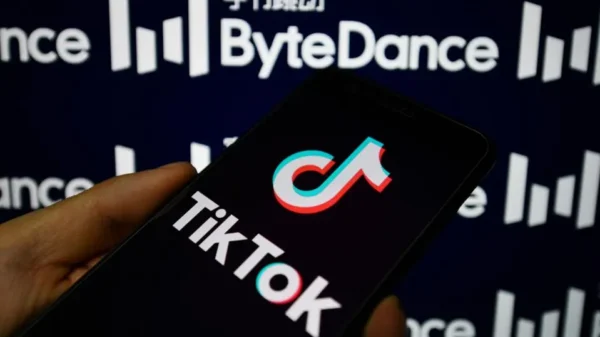Haliey Welch, better known as the “Hawk Tuah Girl,” has found herself embroiled in controversy following the dramatic crash of her newly launched cryptocurrency, $HAWK.
The token, which initially soared to a market capitalization of nearly USD$500 million, experienced a catastrophic decline, leaving investors questioning the integrity of the project and Welch’s involvement.
Welch, who shot to fame after a viral street interview where she humorously advised on intimate relationships, ventured into the cryptocurrency world with the launch of $HAWK on the Solana blockchain.
The memecoin was promoted with the promise of community engagement and was part of what Welch described as “Hawkanomics.” However, the coin’s value plummeted by over 95 per cent within hours of its launch, from a peak of USD$490 million to around $28 million, according to market data tracked by DEX Screener.
The sharp decline led to accusations of a “pump and dump” scheme, where the value of a cryptocurrency is artificially inflated before the creators sell off their holdings, causing the price to crash.
Crypto investigator Stephen Findeisen, known as Coffeezilla on YouTube, called the launch “one of the most miserable, horrible launches I’ve ever seen in my life.” He pointed out that Welch was allegedly paid USD$125,000 in advance for marketing the token. Blockchain analysis revealed a significant portion of the tokens in related wallets, suggesting coordinated trading patterns.
Welch stated on social media that no key opinion leaders (KOLs) were given free tokens and that high fees were initially set to deter “snipers” from manipulating the market. However, community notes on her posts suggested otherwise, indicating that her team had been selling tokens since launch.
Read more: Beyond Bitcoin: A Mugglehead roundup
Read more: Bitfarms adds significant amounts of hashrate with Stronghold Digital Mining addition
SEC hints at possible legal action against Welch
The fallout from the $HAWK debacle has been both financial and reputational.
Several investors have filed complaints with the Securities and Exchange Commission (SEC), hinting at possible legal action against Welch for what they perceive as a misleading investment opportunity. Social media has been abuzz with calls for her arrest, with some users jokingly referring to her as “Hawk Tuah Girl gone to prison”.
This incident is part of a growing trend where celebrities and influencers launch cryptocurrencies, often leading to volatile outcomes. Past examples include Kim Kardashian’s promotion of EthereumMax and Logan Paul’s involvement with various crypto projects, both of which faced scrutiny for lack of transparency or outright scams.
As of now, it remains uncertain what legal consequences Welch might face. Her team has promised to provide evidence to counter allegations of financial misconduct, but no such evidence has been forthcoming. Meanwhile, the crypto community watches closely, with some investors already attempting to create a “revenge coin” called $TUAH, aiming to outstrip $HAWK’s market cap as a form of retribution.
The Hawk Tuah Girl’s foray into cryptocurrency has turned from a viral moment of fame into a cautionary tale about the risks of influencer-driven investments in the volatile crypto market. It underscores the need for greater due diligence from both investors and influencers when venturing into the digital currency space.
Read more: BitFuFu new website and app offers expanded payment options for miners and users
Read more: Chinese Bitcoin miner looking to the American south for sustainable mining options
Rug pulls happen frequently with decentralized finance platforms
In the cryptocurrency world, “rug pulls” are a type of scam where developers launch a token, promote it heavily, and then suddenly withdraw all liquidity or sell off their large holdings, leaving other investors with worthless assets.
This tactic often exploits the decentralized nature of crypto markets and their lack of regulation. Rug pulls frequently occur in decentralized finance (DeFi) platforms and with new tokens that promise high returns or innovative use cases.
One infamous example is the Squid Game coin (SQUID), launched in 2021. Inspired by the popular Netflix series, the coin garnered massive attention and saw its price skyrocket by over 310,000 per cent.
However, it turned out to be a classic rug pull. The developers abandoned the project and siphoned off approximately USDd$3.4 million, leaving investors unable to sell their tokens due to deliberately implemented restrictive mechanics.
Another notable case is the Evolved Ape NFT project, which promised a play-to-earn fighting game alongside its NFT series. Shortly after raising about USD$2.7 million through the sale of its NFTs, the anonymous developer disappeared with the funds, abandoning the project’s roadmap and community.
Rug pulls highlight the risks associated with unverified projects in the crypto space. Regulatory bodies are increasingly scrutinizing such scams, but prevention largely rests on individual vigilance.
.













